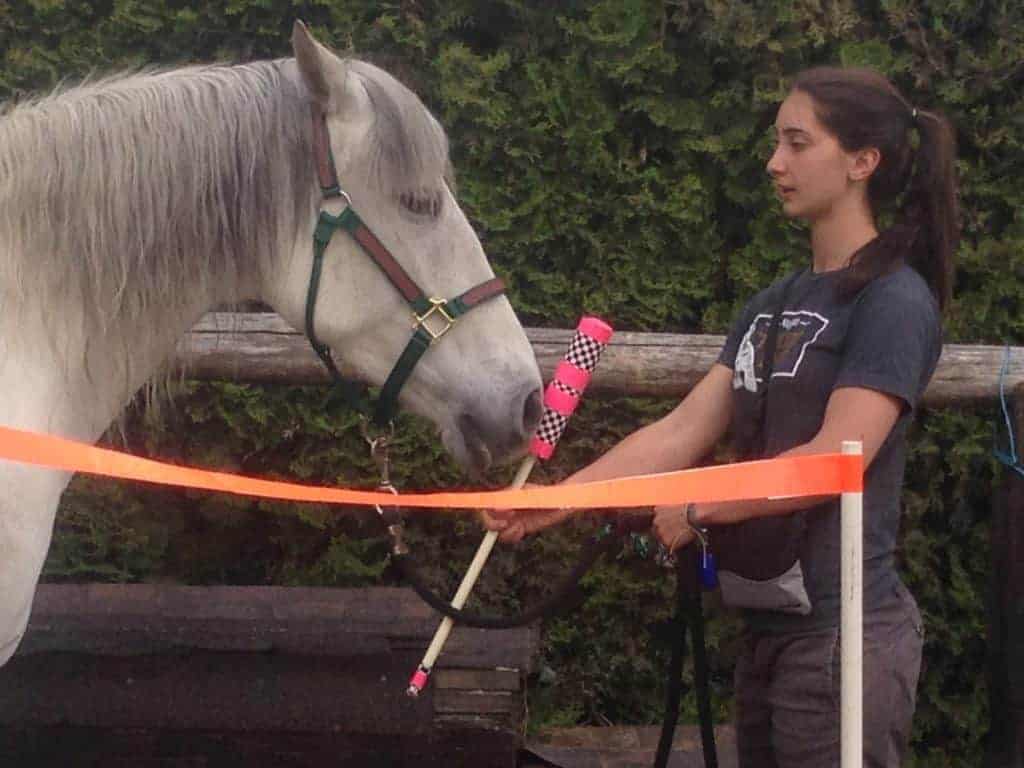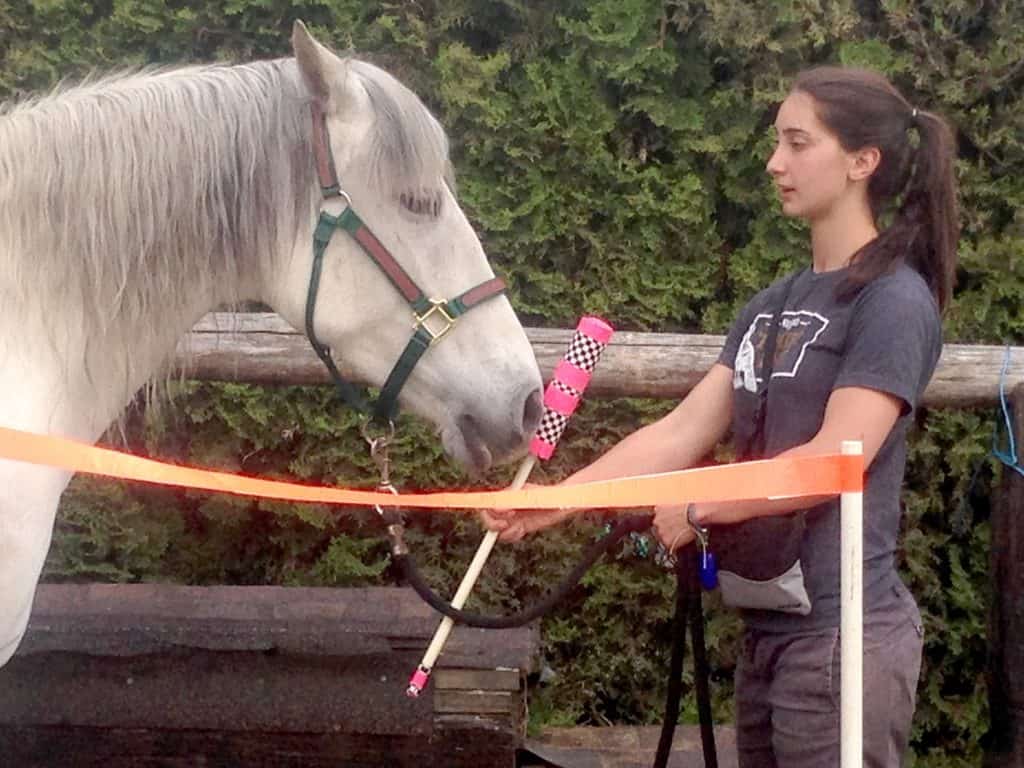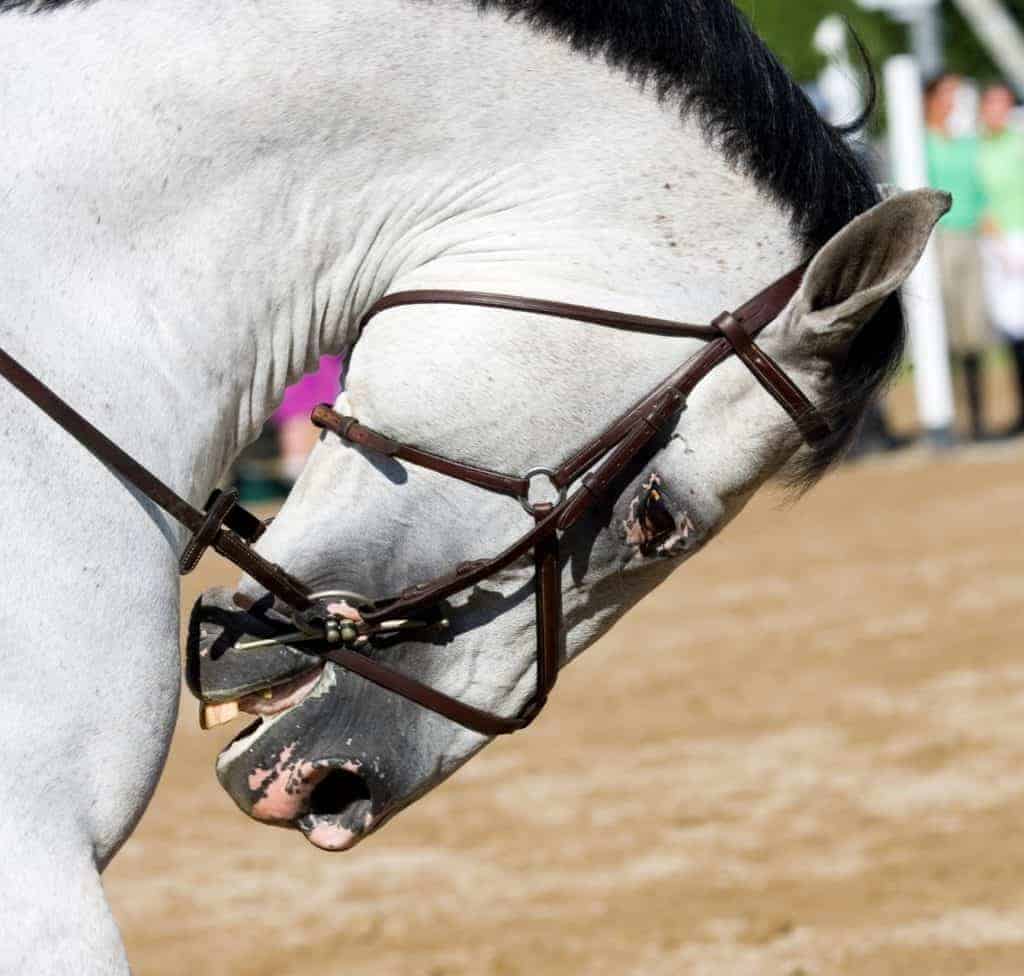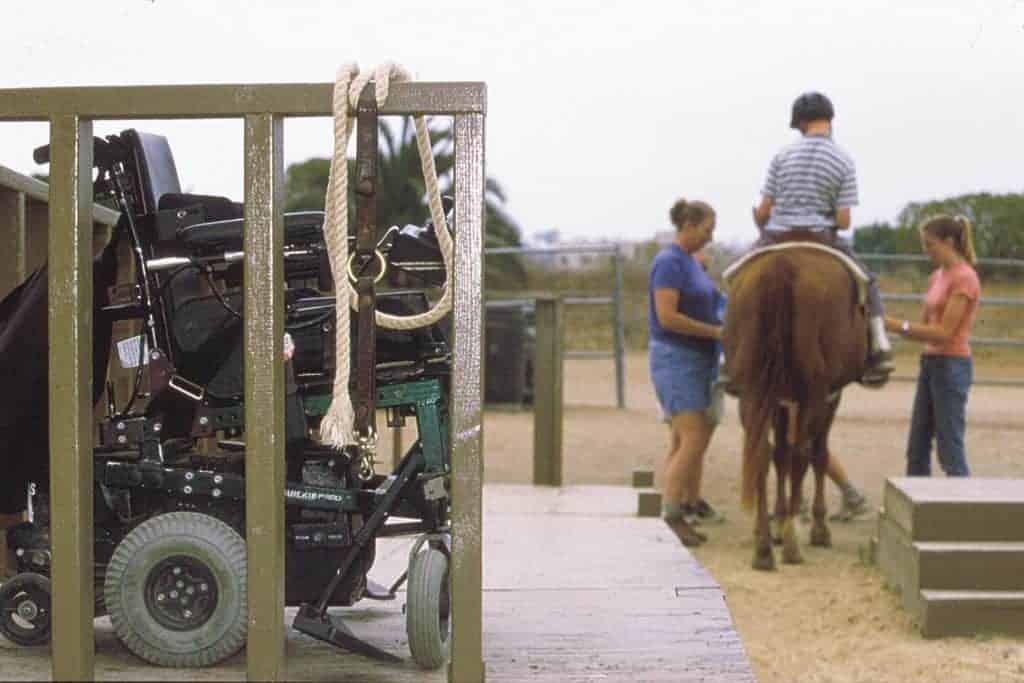
The Martingale’s Effect on Rein Tension
Researchers determined that rein tensions were more consistent when horses were ridden with a martingale than without.

Researchers determined that rein tensions were more consistent when horses were ridden with a martingale than without.

Andrew McLean describes equitation science’s beginnings and how learning theory can apply to far more than horses.

Knowing if sleep patterns affect performance could prompt interest in sleep as an important horse management factor.

Researchers emphasized the importance of using subtle cues and having precise timing when training in the round pen.

Researchers found no differences in horses’ stress levels in high-stress situations before and after training.

Rein tension can be a welfare concern that could result in both clinical and behavioral problems.

Enjoy these highlights and article links from the 2015 International Society for Equitation Science Conference.

Such equipment appeared most prevalent in sales advertisements for more expensive, higher-level horses, scientists said.

Does hyperflexion have negative effects or does it help improve horses’ performance? Scientists review the research.

A recent survey suggests that many horse owners have a poor understanding of equine nutrition.

Learn how to safely train horses to behave during common procedures, such as taking temperatures and giving injections.

Researchers found that different types of situations affected horses’ eye wrinkle characteristics.

One researcher shared her recently developed model for improving welfare in the stock horse industry.

Researchers observed a negative bias of block-colored and spotted horses, which could impact subjective evaluations.

One vet shares how learning theory techniques can help teach difficult horses to stand calmly and accept treatments.

Stress can impair a horse’s performance, diminish the benefits of therapy, and create safety risks to vulnerable riders.
Stay on top of the most recent Horse Health news with
"*" indicates required fields